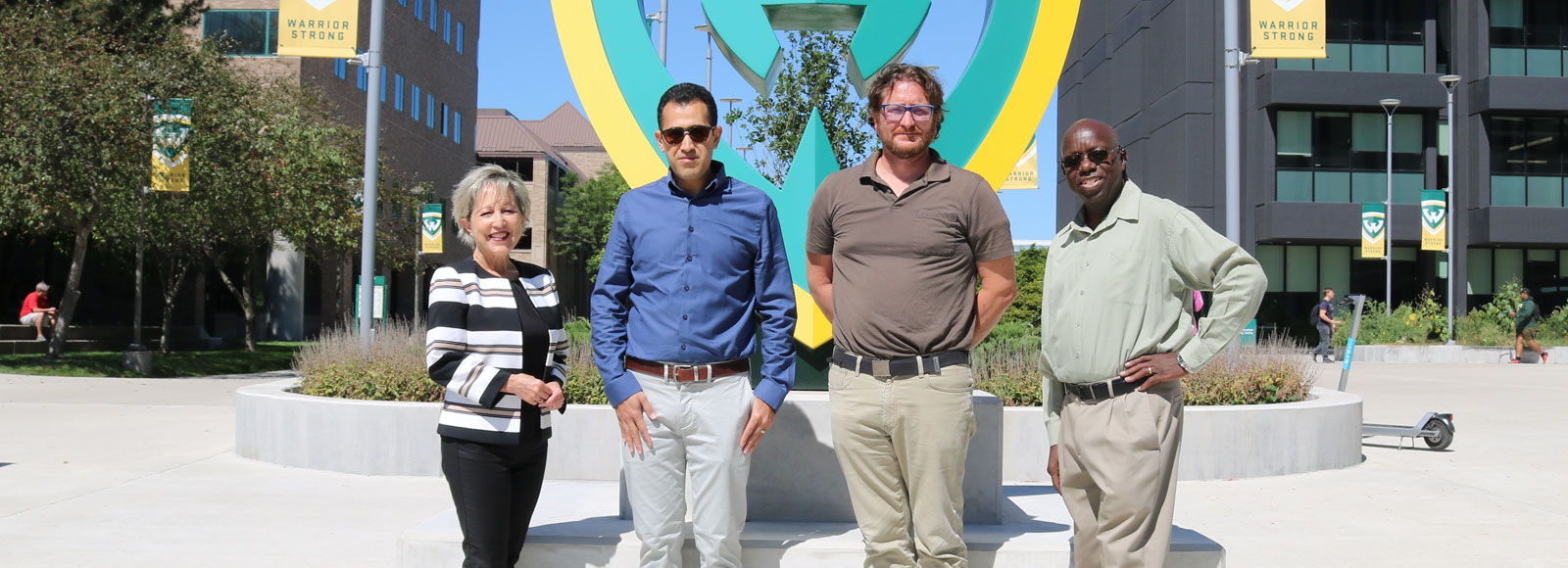Wayne State receives $1.5M from NSF to support student success in engineering technology programs

Wayne State University’s Engineering Technology (ET) Division offers upper-division programs designed to provide a pathway for community college transfers to earn a bachelor’s in two years. However, many nontraditional students face significant financial and personal challenges that can inhibit their ability to complete their degrees. A project backed by the National Science Foundation aims to reduce or eliminate these barriers.
A team of Wayne State University faculty members led by Mohsen Ayoobi, associate professor of engineering technology, secured a six-year, $1,499,830 NSF grant titled "Assuring Students Success in Engineering Technology Programs (ASSET).” This project will fund 48 students to ensure the retention and graduation of high-achieving, low-income undergraduate students pursuing bachelor’s degrees in ET programs. More specifically, the ASSET project will support four cohorts of 12 students, with the first cohort starting in fall 2023. Each cohort will run for two years.
The ET student population is made up of 65% transfers from area community colleges, with the balance being internal transfers. More than 40% of ET undergraduates are eligible for Pell Grants; the figure rises to 60% among those who file for FAFSA. It is anticipated that providing these funds — along with implementing evidence-based social, professional and academic development activities for the scholars — will help boost retention rates, graduation rates and average time to degree in ET programs.
In addition to its financial and academic implications, the project will also provide significant data-driven insights on improving education and educator development, and strengthen the partnerships between academia and industry by meeting the increasing demand for better-prepared graduates.
“We hypothesize that early engagement and continuous support play a key role in fostering identification with the engineering profession, retention and persistence of ET transfer students,” said Ayoobi. “Improving the academic and professional outcomes of our students, in addition to increasing the opportunities for academically talented ET students with low socioeconomic status, will positively and profoundly impact the communities in southeast Michigan — as the majority of our graduates join the workforce in the metro Detroit area — and make significant contributions to the local and regional economies.”
Co-PIs on the project are Ece Yaprak, professor and chair of engineering technology; David Merolla, associate professor and chair of sociology in Wayne State’s College of Liberal Arts and Sciences; and Emmanuel Ssemakula, professor and undergraduate program director of engineering technology.
The Engineering Technology Division has articulation agreements with numerous community colleges in the region, allowing students to transfer up to 90 credits to Wayne State in undergraduate programs such as electrical/electronic engineering technology and mechanical engineering technology, both of which are ABET-accredited programs. The division also offers a degree in construction management and in welding and metallurgical engineering technology, one of only two four-year welding programs in Michigan.